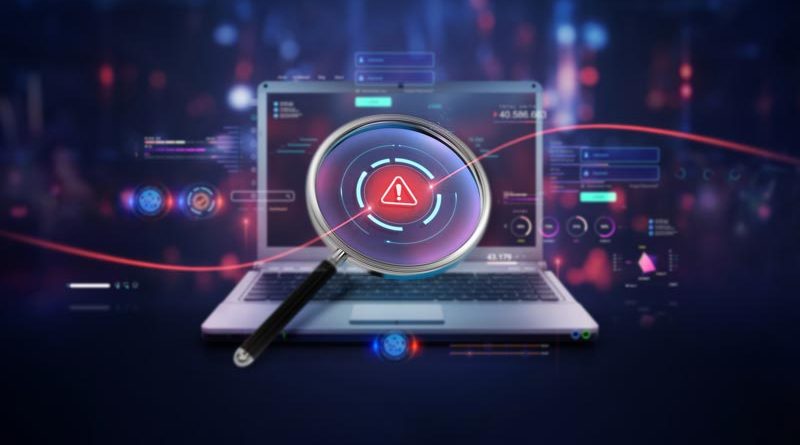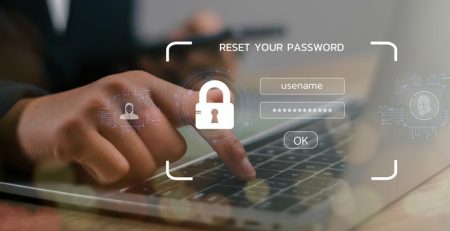Avoid These 6 Cybersecurity Myths and Misconceptions
Editor’s note: October is . This is the fifth in a series of blog posts dedicated to educating and informing you about cybersecurity practices. Check out the list below for links to the rest of the series:
- How Does Security and Privacy Work with Microsoft 365 Copilot?
- Follow These 3 Rules to Avoid Online and Phone Scams
- 3 Cybersecurity Measures SMBs Should Implement Now
- Microsoft Ends Support for Windows Server 2012 and 2012 R2: What Does That Mean for Your Business?
- Multifactor Authentication Prompt Bombing: What Is It and How Do You Protect Yourself?
- How to Stay Secure: A Roundup of 7 Educational Cybersecurity Blog Posts
Cybersecurity should be an important part of any organization’s operations, but it can be overwhelming and costly if not done properly.
And because technology is constantly changing, there are a lot of myths and misconceptions that lead to bad decisions and increased risks.
Here are six of the most common myths and misconceptions, how you can avoid falling for them, and how to improve your security awareness and practices.
Myth 1: Cybersecurity is Only for Experts
For some, cybersecurity might elicit images of huge server rooms with IT experts implementing complex security measures to ensure an organization’s data is secure. While that is part of cybersecurity, everyone in your organization is responsible for cybersecurity.
In addition to sophisticated tools and techniques, cybersecurity also is about following simple rules and habits, such as using strong passwords, protecting them with multifactor authentication, utilizing encryption, keeping your software updated, avoiding phishing emails and backing up your data.
You don’t need to be an IT expert to do these things, but a managed service provider can properly train and educate you and your organization.
Myth 2: Cybersecurity is a One-time Thing
Cybersecurity is not something you set up and then ignore. And it’s certainly not possible to secure your systems and networks with one solution or product.
Technology is constantly evolving, which means security measures and practices also are constantly evolving. There are always new threats and vulnerabilities popping up, and you’ll need to adapt your security strategies accordingly.
For example, some MSPs in the past might have suggested multifactor authentication as an extra layer of protection. However, many now require or even go so far as to manually enforce it, as it’s easy to implement and the protection it provides far outweighs the inconvenience of having to enter a one-time code or accept a popup.
Myth 3: Cybersecurity is Only About Technology
An organization’s security measures are only as strong as its weakest link, and unfortunately, many organizations fall victim to data breaches because of human error.
According to the 2023 Verizon Data Breach Investigations Report, 74% of all breaches were successful due to the human element, whether it was error, privilege misuse, use of stolen credentials or social engineering (phishing, business email compromise, etc.).
Cybersecurity also involves people, processes and building a culture of awareness. This includes phishing training to educate your employees on how to spot suspicious emails and what to do in the event your company falls victim to a data breach.
You’ll also need to consider your security policies and procedures and ensure they align with your company’s goals and objectives.
Cybersecurity is not only an expense but also an investment and a benefit that will save you money in the long run by preventing or minimizing the impact of cyberattacks and data breaches.
Myth 4: Cybersecurity is Only for Big Organizations
You only hear about major data breaches from big organizations like Facebook, Yahoo and LinkedIn because data breaches don’t happen to small businesses, right?
Wrong.
While attackers generally are motivated by financial gain, it’s sometimes easier for them to go after small businesses, as they are more vulnerable, less prepared or can’t afford to implement the complex security solutions that a bigger company can.
That doesn’t mean cybersecurity is impossible for any small business; it just means you have to assess your risk level and exposure and utilize the security measures that are appropriate for your situation and needs.
Myth 5: Cybersecurity is Too Expensive
You don’t need to reach six-figure revenues before implementing cybersecurity measures. In fact, many of the measures already discussed, such as multifactor authentication, encryption, strong password usage, etc. don’t cost a dime.
Cybersecurity is not only an expense but also an investment and a benefit that will save you money in the long run by preventing or minimizing the impact of cyberattacks and data breaches, which can lead to significant losses, as well as damage your company’s reputation.
Cybersecurity also keeps your business running smoothly while improving productivity and efficiency, giving you a competitive edge.
Myth 6: Cybersecurity is Perfect
Lastly, no cybersecurity system is perfect, and there is no way to ensure your organization cannot be attacked or breached. It’s an unrealistic expectation.
Your mindset when it comes to cybersecurity should be “when a breach happens” rather than “if a breach happens.”
Cybersecurity is a balance between risk and reward, between security and usability and between prevention and detection. It’s a never-ending journey and through a combination of technical, human and organizational measures, you can dramatically reduce your risk and have peace of mind.
Implement Cybersecurity Measures
Looking to improve your organization’s security practices? Contact us here to see how we can help keep your business running smoothly while increasing productivity and profitability.











